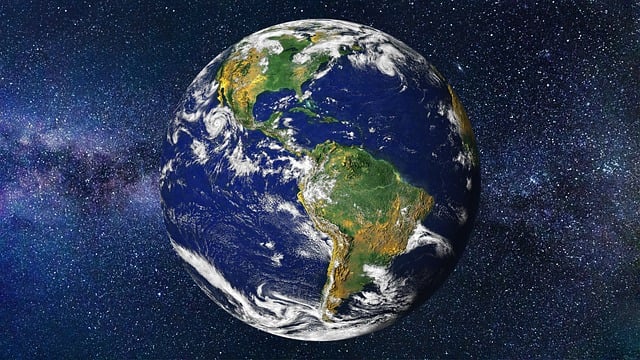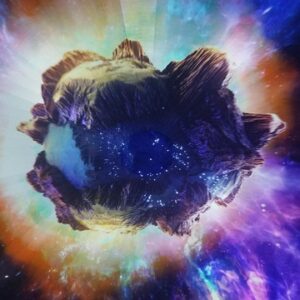There is, in fact, an ocean at the planet's center, hidden by rocks and metals. Scientists have discovered at the Earth's core a reservoir 700 kilometers underground that holds as much water as the three oceans on our planet's surface, bringing imagination and reality together.
In his well-known book "Journey to the Center of the Earth," published 160 years ago, Jules Verne wrote of an amazing voyage beneath the planet's depths, where vast ecosystems and oceans were concealed. This felt like a fantasy back then.
But today, researchers have discovered a shocking finding that contradicts what we know about Earth and its composition: there is an ocean at the planet's core, hidden.
At a depth of approximately 700 kilometers, which corresponds to where significant amounts of water are found in minerals, a diamond containing ringwoodite, a mineral that contains water molecules, was found in Brazil in 2014. According to additional research, there is enough ringwoodite at depths between 410 and 660 kilometers to hold water equivalent to one or more of Earth's oceans.
Earth's core water: The water cycle extends below the surface
This event calls into question conventional wisdom on the water cycle on Earth. It illustrates that water is not limited to the atmosphere and ocean surface but rather flows throughout the planet's interior. Apart from the expected surface rains, water at these depths probably takes part in a process that controls and redistributes Earth's water supplies, forming a subterranean cycle. By helping to cool lava and moderating volcanic activity, this result suggests that water is important for both surface life and the building of continents.
The volume of at least three oceans
Our present understanding of the planet's water supplies is being challenged by scientists who estimate that the volume of water at the Earth's depths is equivalent to at least three oceans. This discovery creates new research opportunities and enables a better understanding of the function that water plays in geological processes like continent formation and volcanic activity, as well as how it keeps the oceans stable on the surface.
Influence on the forecast of disasters and volcanic activity
New questions concerning the impact of deep-seated water on volcanic activity are also brought up by this research. By anticipating how the interaction of water and rocks may result in geological events on the Earth's surface, scientists could utilize this information to forecast possible calamities, such as earthquakes or volcanic eruptions.
One important resource is water.
Data on the amount of water concealed in the Earth's depths seems like a fantastic discovery to scientists and ecologists in a world where water is becoming a more valuable resource. This water in the Earth's deep transitional zone may hold the secret to comprehending the planet's water cycles and climatic shifts, according to recent satellite studies.
Jules Verne and science's future
Fans of Jules Verne's work and scientific imagination will not be surprised that this finding was a success. With the aid of the most recent scientific research and technologies, experts today validate his predictions about the presence of hidden oceans within the planet, which he made in his novel. This finding serves as a reminder of how creativity can stimulate the search for new information and the growth of human comprehension. Therefore, we might have only just begun to reveal the hidden facets of the Earth that brilliant thinkers have predicted, and there are still a ton of incredible discoveries to come.





